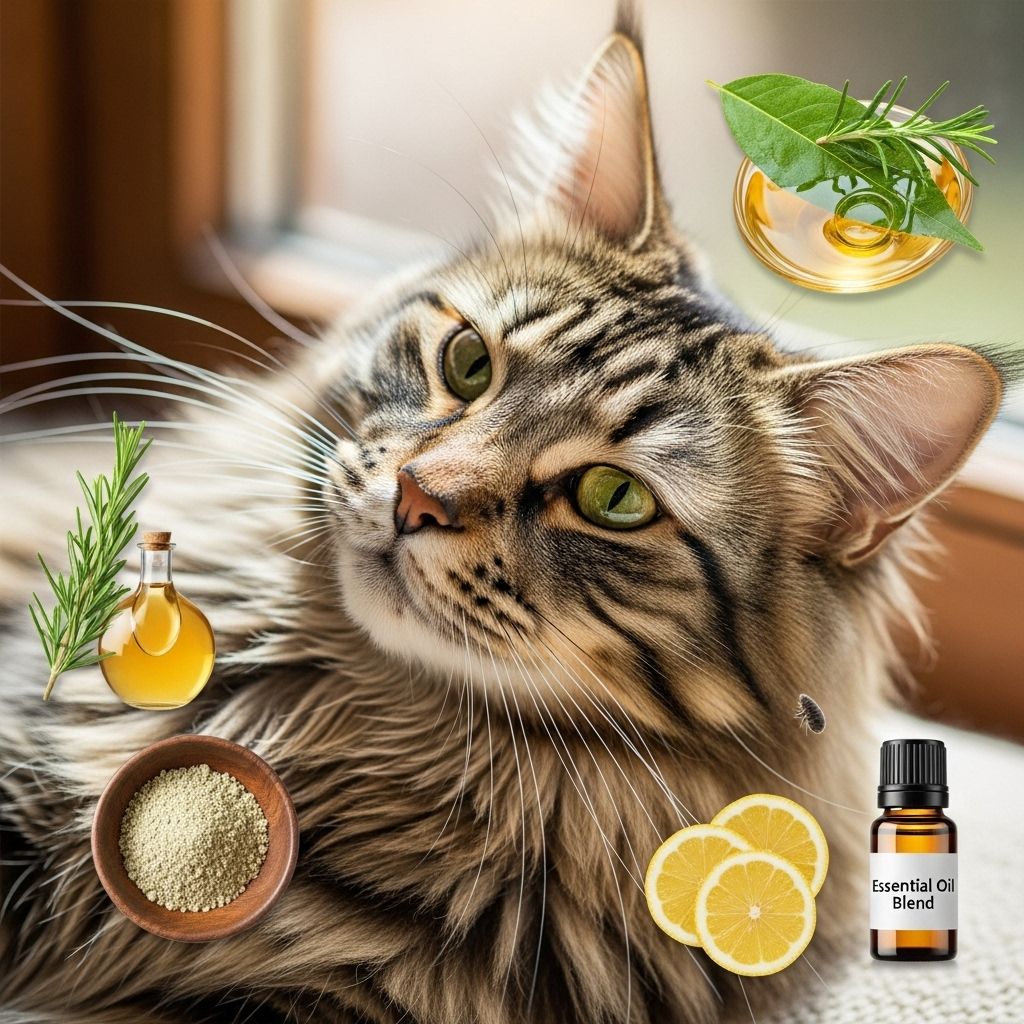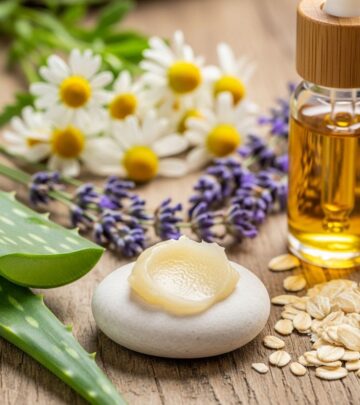10 Home Remedies for Fleas on Cats
Natural Solutions for a Flea-Free Kitty

Introduction to Flea Remedies for Cats
Fleas can be a persistent problem for many cat owners, leading to discomfort and health issues for their pets. While traditional flea treatments are effective, some pet owners prefer natural home remedies as an alternative. Here, we explore 10 home remedies for fleas on cats, along with expert advice on their usage and safety.
Why Choose Home Remedies?
Home remedies are becoming increasingly popular due to their natural ingredients and cost-effectiveness. However, it’s important to consult with a veterinarian before using any new treatments, especially if your cat has allergies or sensitivities. Dr. Hannah Godfrey advises, “Most home remedies aren’t effective when it comes to treating fleas on your cat, and some can even be dangerous.”
Understanding Flea Life Cycles
Fleas have a complex life cycle that includes eggs, larvae, pupae, and adult fleas. Most home remedies target adult fleas, leaving the remaining stages unaffected. This means that while these remedies might relieve immediate discomfort, they may not provide long-term solutions.
- Lemon Spray: Citrus can repel and kill fleas. Boil lemons in water, then steep and use as a spray or apply with a comb.
- Cedar Oil: Known for its natural repellent properties, use it in moderation due to potential toxicity.
- Oregano Oil: Like cedar oil, oregano oil has antimicrobial properties but should be used cautiously.
- Rosemary: Rosemary leaves can be brewed in hot water and used as a spray or rinse.
- Aloe Vera: Mix aloe vera juice with cayenne pepper to create a flea repellent spray. Ensure only the clear juice is used.
- Apple Cider Vinegar: Mix with water and apply to the cat’s coat to repel fleas.
- Coconut Oil: Some pet owners use coconut oil as a flea repellent, though its effectiveness is variable.
- Peppermint Oil: Contains properties that can kill fleas and their eggs when used in specific formulations.
- Catnip: Has natural flea-repelling properties and can be used in various forms.
- Dish Soap: Can be used in baths to remove adult fleas, though it doesn’t address eggs or larvae.
Natural Flea Treatments to Avoid
Some natural remedies are not safe for cats and should be avoided:
- Lemons: While lemon juice can deter fleas, lemons contain essential oils and psoralens that are toxic to cats.
- Baking Soda: There is no evidence that baking soda effectively kills or repels fleas.
- Lavender: Lavender is toxic to cats and can cause gastrointestinal upset.
How to Use Home Remedies Safely
Always conduct a patch test before applying any new remedy to ensure your cat doesn’t have an adverse reaction. Additionally, maintain regular grooming and use flea combs to remove adult fleas.
Preventing Fleas in Your Home
To effectively manage fleas, it’s crucial to treat both your cat and your home environment. Here are some steps to prevent fleas in your home:
- Vacuum Regularly: Use a high-suction vacuum to remove flea eggs, larvae, and other debris from carpets and upholstery.
- Steam Clean: Steam cleaning can kill fleas and their eggs on surfaces.
- Wash Bedding: Regularly wash your cat’s bedding and any fabrics they come into contact with in hot water.
- Use a Household Flea Spray: Apply a pet-safe spray to kill fleas and their developmental stages in your home.
Best Flea Treatments for Cats
Beyond home remedies, there are many effective flea treatments available. Options like Frontline Plus, Seresto Flea and Tick Collars, and Capstar Flea Tablets are highly recommended by veterinarians for their efficacy and safety.
Frequently Asked Questions (FAQs)
Q: Are all natural remedies safe for cats?
A: No, not all natural remedies are safe for cats. Some ingredients, such as lemons and lavender, can be toxic.
Q: How often should I use home remedies?
A: Use home remedies as directed and only after consulting with a veterinarian, as they may not provide long-term flea control.
Q: Should I use both home remedies and commercial treatments?
A: It’s advisable to use vet-recommended commercial treatments for effective flea control, but home remedies can be supplementary under veterinary guidance.
References
- https://www.petmd.com/cat/general-health/natural-flea-treatment-for-cats
- https://www.petsradar.com/advice/home-remedies-for-fleas-on-cats
- https://www.petsradar.com/advice/how-to-get-rid-of-fleas
- https://www.petsradar.com/buying-guides/best-flea-treatments-for-cats
- https://www.petsradar.com/advice/how-to-give-a-cat-a-flea-bath-that-hates-water
- https://www.petsradar.com/advice/does-dawn-dish-soap-kill-fleas
- https://www.youtube.com/watch?v=6E16uCFxqmk
- https://www.petsathome.com/product/listing/cat/cat-flea-tick-and-wormers/cat-flea
- https://www.petsradar.com/advice/home-remedies-for-fleas-on-dogs
- https://www.petsmart.com/cat/flea-and-tick
Read full bio of medha deb












